Posted on 5/30/2025
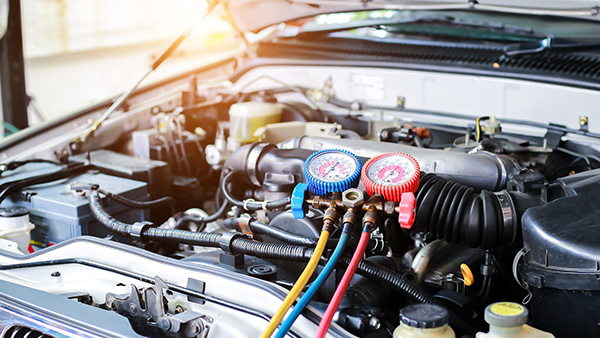
Driving through the Nevada desert without air conditioning can be dangerous. With summer temperatures regularly soaring past 100 degrees, your vehicle’s A/C system becomes essential, not optional. Whether you're commuting through Las Vegas or heading out on a road trip, a failing A/C system can turn your drive into a miserable, overheated ordeal. Before you find yourself stuck in a metal box roasting under the desert sun, here’s how to spot signs of A/C trouble on time, keep the system running reliably, and stay safe on the road. Hot Air at the Worst Time When your A/C starts blowing warm air in the middle of a heatwave, it’s often due to low refrigerant levels or a leak in the system. This problem can sneak up on you—your air might feel cool in the morning but blow hot by the afternoon, especially during long drives. If the refrigerant is leaking from a damaged hose, a worn seal, or a cracked condenser, the system loses pressure and stop ... read more
Posted on 4/27/2025
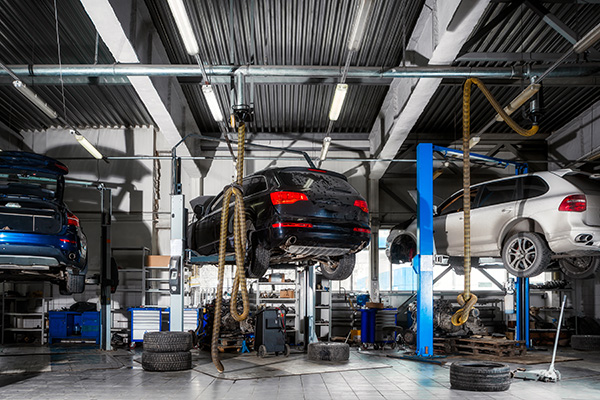
Auto repair can feel like unfamiliar territory. You bring your car in for what seems like a small issue, and suddenly, you’re staring at a long list of “urgent” repairs with a price tag to match. That’s exactly why more drivers are turning to second opinions before authorizing major work—and why you should, too. Getting a second opinion doesn’t mean you’re questioning a shop’s honesty—it’s about protecting your investment, gaining peace of mind, and making sure you’re only paying for what’s truly necessary. It Helps You Separate Urgent From Optional Not every repair that shows up on an inspection is an emergency. Some parts might be worn but still functional. Others may be suggested for preventative reasons but don’t actually need immediate replacement. A second opinion helps you sort through what’s critical and what can wait. One shop may recommend replacing an entire suspension as ... read more
Posted on 3/28/2025
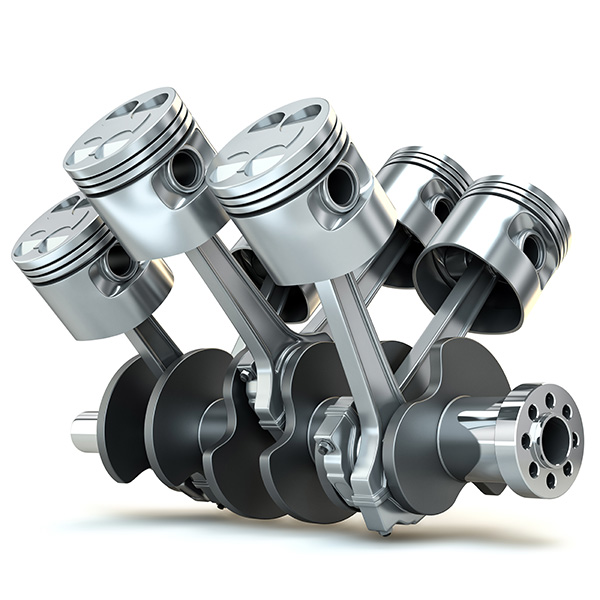
Toyota’s V6 engines have a reputation for being reliable and long-lasting, but that doesn’t mean they’re immune to problems. Like any engine, they require regular maintenance and attention to keep running. Some Toyota V6 models have well-documented issues that, if ignored, can lead to expensive repairs or even complete engine failure. If you own a Toyota with a V6 or are considering buying one, knowing the most common problems—and how to prevent them—can save you money and frustration in the long run. 1. Timing Cover Oil Leaks One of the most frequently reported issues in Toyota V6 engines is oil leaking from the timing cover. Over time, the sealant around the cover deteriorates, leading to leaks that can worsen if left unchecked. Oil leaks can cause low oil levels, increased engine wear, and in some cases, internal damage. If you notice oil spots under your car or a burning smell while driving, it’s time to have your engine chec ... read more
Posted on 2/28/2025
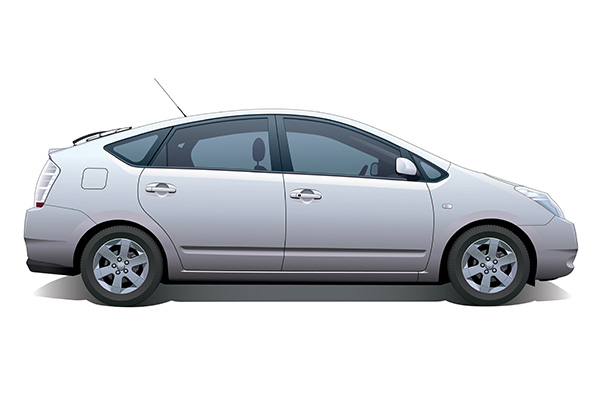
Toyota has built a reputation for producing reliable, fuel-efficient, and long-lasting vehicles, making it one of the most popular car brands in the United States. Whether you're looking for a fuel-efficient sedan, a versatile SUV, or a powerful truck, Toyota offers a model to fit nearly every lifestyle. Over the years, a few models have stood out as customer favorites, consistently topping sales charts and earning high marks for dependability. Here are five of the most popular Toyota vehicles in America and why drivers continue to choose them. 1. Toyota Camry – America’s Favorite Midsize Sedan The Toyota Camry has been a best-seller for decades, and for good reason. Known for its dependability, fuel efficiency, and comfortable ride, the Camry appeals to commuters, families, and even performance enthusiasts with its available sport-tuned TRD version. What makes the Camry so popular? Reliable engine options – A standard fuel-efficient four-cyl ... read more
Posted on 1/31/2025
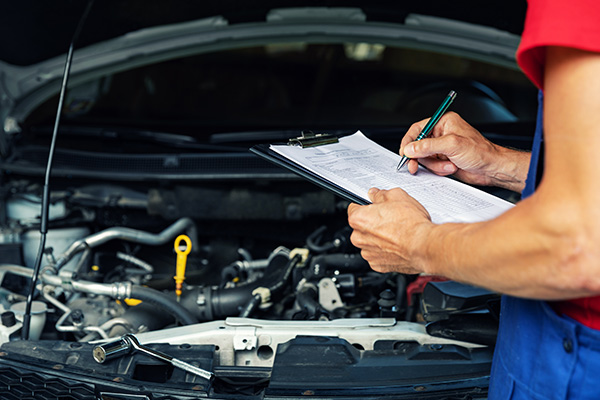
Buying a car, whether new or used, is an exciting but significant financial decision. However, while that shiny paint job and impressive test drive may capture your attention, there could be hidden issues lurking under the hood. That’s where a pre-purchase inspection (PPI) comes in. This essential step ensures you make a smart investment while avoiding costly surprises. Let’s explore how pre-purchase inspections can save you money and give you peace of mind. Uncovering Hidden Problems When purchasing a vehicle, its outward appearance and basic functionality during a test drive may not reveal the entire story. A pre-purchase inspection goes beyond the surface, thoroughly assessing the car's condition. Certified technicians check for hidden issues like engine trouble, transmission wear, brake system irregularities, and suspension problems. For example, a vehicle with a clean exterior might have internal rust, fluid leaks, or worn-out components that co ... read more
Posted on 12/20/2024

Las Vegas, NV, is a city that comes alive when the sun sets. Its dazzling lights, bustling streets, and iconic landmarks make it a spectacle unlike any other. But behind the glitz and glam lies a challenge for drivers: navigating the chaos of night driving. Whether you’re a local or just visiting, driving at night in Las Vegas requires a mix of awareness, preparation, and patience. We'll share some tips and strategies to help you survive the neon jungle and keep your night on track. Eye-Strain and Visibility Issues The Las Vegas Strip is a marvel to behold, but its vibrant lights can be both a blessing and a curse. While the illumination makes it hard to find a truly dark corner of the city, it also creates significant glare, especially if you’re already fatigued. To combat this, make sure your windshield is clean inside and out. Dust, smudges, and fingerprints can amplify glare, making it harder to see clearly. Additionally, dim your dashboard light ... read more
Posted on 11/29/2024
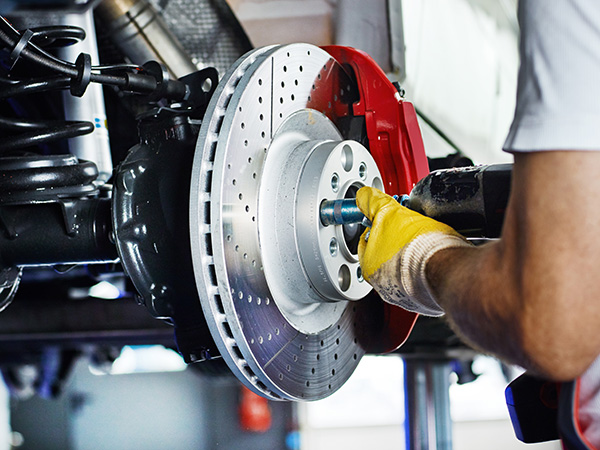
When you’re driving, especially in adverse conditions, stopping your car safely and effectively is important. That’s where Anti-lock Braking Systems (ABS) come into play. ABS has become a standard feature in most modern vehicles designed to enhance safety and control during braking. But how exactly does it work, and why is it so effective? What Is ABS and How Does It Work ABS stands for Anti-lock Braking System. Its primary job is to prevent your car’s wheels from locking up during heavy braking or on slippery surfaces. When a wheel locks up, it loses traction, causing the vehicle to skid. The ABS system uses sensors on each wheel to monitor their speed. If it detects that one or more wheels are about to lock up, the system quickly modulates the brake pressure on those wheels. This happens in rapid pulses—much faster than any human could manage. The result? Improved control and shorter stopping distances in critical situations. The S ... read more
Posted on 10/31/2024
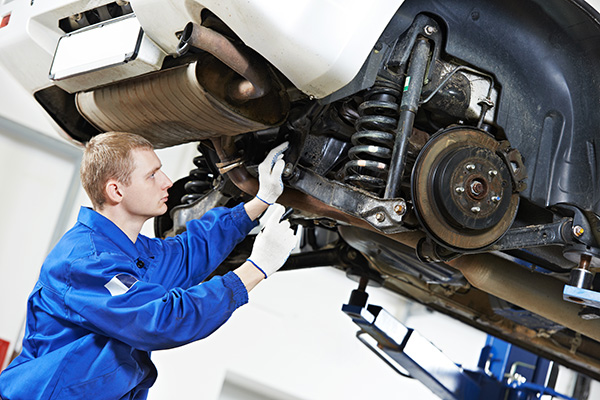
One of the most alarming driving experiences is feeling your steering wheel shake as you brake. It’s unsettling and can make you wonder if something serious is wrong with your car. This is a common issue, and while it should be addressed promptly, understanding the causes can help you figure out the right solution. So, why does your car’s steering wheel shake when you brake? 1. Warped Brake Rotors One of the most frequent causes of a shaking steering wheel during braking is warped brake rotors. Brake rotors are the discs your brake pads clamp down on to slow your car. Over time, excessive heat, friction, or uneven wear can cause the surface of the rotors to become uneven. When this happens, your brake pads will grip inconsistently, leading to a noticeable vibration in your steering wheel. How do you know it’s the rotors? Shaking typically worsens at higher speeds. The vibration tends to increase the harder you press the brake pedal. Warped rotors ... read more
Posted on 9/27/2024
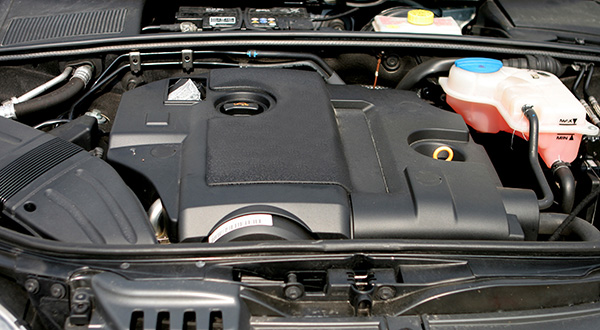
Your car’s oxygen sensor plays a critical role in its overall performance, but most drivers don’t give it much thought—until something goes wrong. This small but essential component helps monitor the levels of oxygen in your exhaust and adjusts the air-to-fuel ratio for optimal engine efficiency. When the oxygen sensor goes bad, it can lead to a variety of issues that impact your car’s performance, fuel economy, and emissions. What Does an Oxygen Sensor Do? Before we get into the warning signs, it’s important to understand what the oxygen sensor is and what it does. Located in your vehicle’s exhaust system, the oxygen (O2) sensor measures the amount of oxygen in the exhaust gasses leaving the engine. It sends this information to the car’s engine control unit (ECU), which adjusts the air-fuel mixture to ensure optimal combustion. A well-functioning oxygen sensor is vital for keeping your engine running efficiently and maintai ... read more
Posted on 8/30/2024

When it comes to choosing a car, fuel economy is often a top priority for many drivers. It makes sense—who wouldn't want to save money at the pump? As fuel prices continue to fluctuate, more people are considering smaller engines as a way to cut costs. But is a smaller engine always the best choice for fuel economy? The answer isn't as straightforward as you might think. Let's explore the nuances of engine size, fuel efficiency, and what factors you should consider when making a decision. Engine Size and Efficiency First off, let's clarify what we mean by "engine size." Engine size is typically measured in liters and refers to the total volume of all the cylinders in an engine. A smaller engine has a lower displacement, which translates to less fuel consumption. However, several factors come into play when assessing whether a smaller engine is indeed better for fuel economy. Smaller engines, especially those equipped with turbocharger ... read more